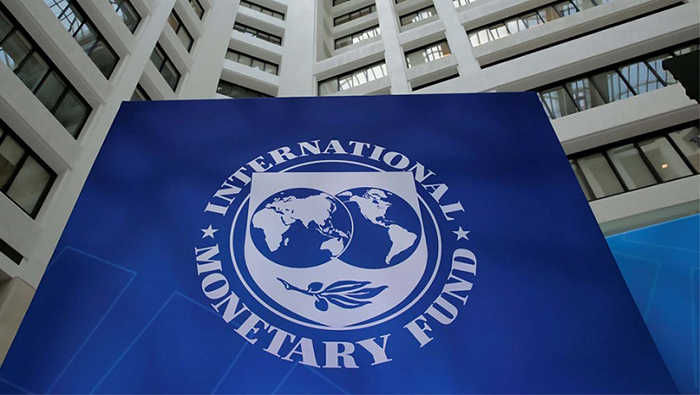
Washington: The International Monetary Fund (IMF) in its flagship World Economic Outlook projected that India will be the fastest growing economy in the world amid financial sector turmoil, high inflation, ongoing effects of the Russia-Ukraine war, and three years of COVID.
IMF on Tuesday lowered its growth projection for 2023-24 to 5.9 per cent from 6.1 per cent earlier but despite a significant drop, India continues to be the fastest-growing economy in the world, the World Economic Outlook figures revealed. The IMF projects India's inflation to slow to 4.9 per cent in the current year and further to 4.4 per cent next fiscal year.
IMF growth forecast is lower than the Reserve Bank of India (RBI) projection. The central bank predicted 7 per cent GDP growth for FY 2022-23 and 6.4 per cent in the ongoing fiscal that started on April 1.
The government is yet to release full-year GDP numbers for 2022-23.
Meanwhile, the international lender flagged concerns about inflation, debt and risks to the financial sector from rising interest rates. It warned that if banks cut lending further, the global output will reduce by another 0.3 percentage point in 2023.
"Despite the fillips from lower food and energy prices and improved supply-chain functioning, risks are firmly to the downside with the increased uncertainty from the recent financial sector turmoil," the report said.
The IMF projects growth to bottom out at 2.8 per cent in 2023, picking up to 3 per cent in 2024. Inflation is expected to stay elevated at 7 per cent for the rest of the year, before declining to 4.9 per cent next year.
Supply-chain disruptions and rising geopolitical tensions have brought the risks and potential benefits and costs of geoeconomic fragmentation to the center of the policy debate, added the report.
FDI flows are increasingly concentrated among geopolitically aligned countries, particularly in strategic sectors.
Several emerging market and developing economies are highly vulnerable to FDI relocation, given their reliance on FDI from geopolitically distant countries.
In the long term, FDI fragmentation arising from the emergence of geopolitical blocs can generate large output losses, especially for emerging market and developing economies, added the report.
Tentative signs in early 2023 that the world economy could achieve a soft landing--with inflation coming down and growth steady--have receded amid stubbornly high inflation and recent financial sector turmoil.
Although inflation has declined as central banks have raised interest rates and food and energy prices have come down, underlying price pressures are proving sticky, with labor markets tight in a number of economies.
Side effects from the fast rise in policy rates are becoming apparent, as banking sector vulnerabilities have come into focus and fears of contagion have risen across the broader financial sector, including nonbank financial institutions.
Risks to the outlook are heavily skewed to the downside, with the chances of a hard landing having risen sharply, added the report.
Public debt as a ratio to GDP soared across the world during COVID-19 and is expected to remain elevated, posing a growing challenge for policymakers, particularly as real interest rates are rising across the world.
China's growth rate is projected to be 5.2 per cent in 2023 and 4.5 per cent in 2024 against its growth rate of three per cent in 2022.
The US's growth forecast for 2023 is 1.6 per cent, France 0.7 per cent, while Germany and the UK are a dismal -0.1 per cent and -0.7 per cent, respectively.
Most countries will, however, avoid recession in 2023 despite the COVID pandemic lingering and tightening financing conditions as the Russia-Ukraine war continues.